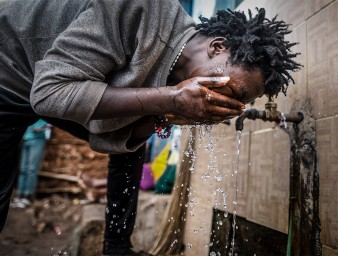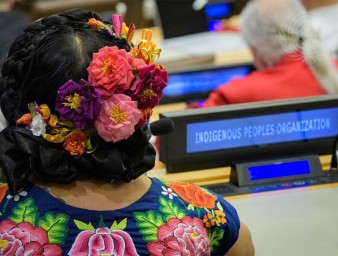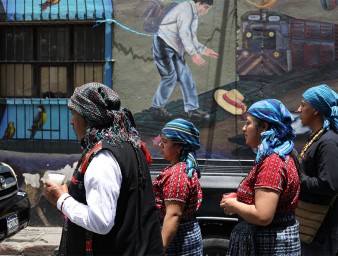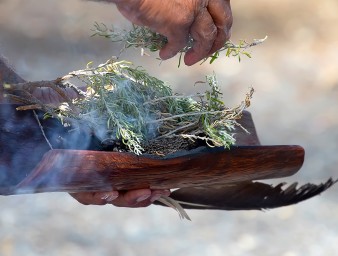"Anyone can use their voice. Believe in yourself."
22 January 2019

It is time for people to start treating water with the respect that it deserves, said water rights activist Autumn Peltier.
"Our water is sacred," Peltier said. "It has a spirit, and we have to treat it like a human being."
For Peltier, defending the water is rooted in her traditions. As a member of the Wikwemikong First Nation in Canada, her community has long held water in high spiritual esteem. Water is significant to her community, she said, and it is women's role to protect it.
At 14, Peltier is one of the youngest water rights activists in Canada, a fact she said has caused her some problems. She first became active on the issue when she was eight years old. She said she noticed that during water ceremonies, they were not allowed to drink the water from the taps. Her mother told her that the community was on a boiled water advisory, meaning all the water had to be boiled before use.
"I tried to wrap my head around why people can’t drink their water," she said. "It was a hard topic to understand, and learn and it just made me mad."
Her anger turned to action. As her ancestors have done for generations, and her great aunt Josephine Mandamin taught her, Peltier started to raise her voice for water protection. She joined Mandamin on water walks– walking around a body of water praying. Mandamin has walked the shorelines of all five great lakes in that border between the United States and Canada.
Peltier also created blogs on water issues, posted videos, and talked with classmates. Her outreach and advocacy has brought attention. She has made presentations across the country on water issues. She met Canadian Prime Minister Justin Trudeau and told him she was unhappy with some of his decisions regarding water. And last year, she made a presentation before the United Nations in New York on World Water Day. She said it was her biggest success so far.
"To be in a room with world leaders to share with them my concern about clean drinking water and how it’s not only an Ontario issue, but a global issue, and having my message become international was a huge success for someone my age," she said.
This year, she has another accolade: she is one of the nominees for the International Children’s Peace Prize and the only one from her native Canada. Launched in 2005, the Prize is awarded to a child who has worked to improve the lives of children around the world. The prize will be awarded in December in the Netherlands.
There have been challenges, the biggest one being perceptions about her age. Being a teenager, Peltier said she finds adults sometimes don’t take her seriously, dismissing her activism by saying that she was just a kid and not old enough to do this work.
But Peltier said she is the perfect person to be a water activist. In fact, anyone, at any age at any time can stand up for the right of water, or any other part of the environment. Voices matter, she said.
"Every time I speak to youth or older people, I tell them anyone can do this work," she said. "Anyone can use their voice. You have to believe in yourself. I would advocate for others to do this work because it would probably be a stronger message if there were more people."
The Universal Declaration of Human Rights (UDHR) did not explicitly include protection of the environment, but a liveable planet is necessary to achieve all human rights. Peltier said this connection to the environment, to the spirit of the earth, is important to her culture and makes her continue to fight.
"Everything is connected and when we are young we learn these things about respecting the planet and the environment," she said. "They go hand in hand and are rooted together."
22 January 2019




